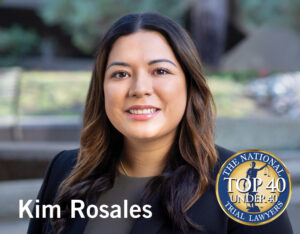Colleges may practice deceptive or fraudulent marketing practices to attract students.
One of the most widespread problems with the recruitment tactics of for-profit colleges involves outright fraudulent and deceptive marketing practices, such as lying to students about a school’s accreditation or the chances of a student’s career success. Such deceptive practices induce students to enroll at schools with a false sense of their future career prospects, and cost taxpayers money when an inordinate number of such students default on their student loans.
School employees who know of such misconduct can file a False Claims Act lawsuit on behalf of the government to recover financial aid funds that were fraudulently obtained. Such whistleblowers can also help students who have been misled into investing time and money into programs that will not advance their career goals.
Examples of for-profit colleges’ fraudulent and deceptive marketing practices include the following:
- In an undercover investigation of 15 for-profit colleges undertaken by the Government Accountability Office (GAO), college personnel at all of the institutions made deceptive and questionable statements to undercover applicants.
- One applicant was told that the college was accredited by the same organization that accredits Harvard and the University of Florida — a statement that was patently false. An admissions representative at another school told an undercover applicant that barbers can earn up to $150,000 – $250,000 a year, in spite of Bureau of Labor Statistics reports that 90 percent of barbers earn less than $43,000 a year.
- Admissions representatives at the for-profit colleges also made deceptive or questionable statements about the schools’ accreditation, graduation rates, students’ prospects for employment, students’ potential future earnings, the length and cost of the program, and financial aid.
- Some students were denied the request to speak with a financial aid advisor before signing an admissions contract, a clear violation of the law.
- In July 2011, Kaplan, Inc. agreed to pay $1.6 million to settle a whistleblower lawsuit concerning charges related to a surgical technology program run by one of its schools, CHI Institute, in Broomall, Pennsylvania. The whistleblower suit was filed in 2007 by the former director of education at the for- profit school.
- The lawsuit alleged that the school enrolled students in its surgical technology program even though it did not have enough of the clinical placements needed for students to graduate. Such clinical placements provide the “hands-on” experience that students in medical programs need to qualify for graduation and jobs in the field.
- The suit alleged that students were placed on “leaves of absence” from the program after finishing their classroom studies to wait for a clinical placement to become available. In many cases, the placements never materialized, and many students were unable to graduate as a result.
- The settlement includes close to $500,000 to pay off student loans taken out by 43 students who were unable to graduate from the program due to the lack of clinical placements.
- In January 2012, the Illinois Attorney General filed suit against national, for-profit Westwood College for deceptive practices that burdened Chicago area students with as much as $70,000 each in student loan debt for degrees that failed to qualify them for criminal justice careers.
- The lawsuit alleges that Westwood College representatives told prospective students that upon graduation, they would qualify for criminal justice jobs with state and local police departments, even though those agencies did not recognize a Westwood degree because the school lacked regional accreditation. Many of the students did not realize the deception until graduating from the school and learning that they did not qualify to work for such agencies.
- The lawsuit also alleges that Westwood engaged in deceptive advertising by promoting its criminal justice program in radio and TV commercials depicting graduates posing as police officers. Its on-line advertisements, according to the suit, gave a false impression that the program was regionally accredited.
- The suit also alleges that the school downplayed the total cost of attending the school and failed to provide students with sufficient information about their student loans.
Some colleges resort to deceptive and misleading practices to entice students.
Students have been fraudulently induced to attend colleges that are not accredited or do not have the programs that are necessary to successfully obtain their desired degree. Because more students mean more financial aid money for the for-profit college, the schools have every incentive to compete fraudulently for students.




